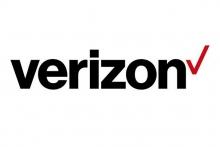How Are We Leading Like Dr. King?

by Rose Stuckey Kirk, senior VP and chief corporate social responsibility officer at Verizon and podcast host of "On the Porch with Rose Stuckey Kirk"
In 1964, Dr. Martin Luther King Jr. stood at a podium in front of international dignitaries to accept the Nobel Peace Prize for his leadership in the fight for equality.
And, while Dr. King accepted the honor on behalf of the civil rights movement, he took this moment to remind us that this accolade wasn’t enough. The very movement he was accepting it for still had not found peace. The battle for justice would continue.
When I think about Dr. King’s legacy, I am reminded of this moment. Today, as we take time to reflect on the impact he left on our world, these words echo differently. I am reminded of what a leader looks like. I am reminded of what a leader refuses to accept even when they achieve something great. I am reminded that a leader in today’s world is one as unrelenting as Dr. King and one that places service over honor.
We see many of these same inequities today, only to be exacerbated by the pandemic. Countless studies have shown that underserved communities have been hit the hardest by Covid-19, in the areas of jobs, education, housing, healthcare and more. In terms of work, people in low-wage positions and people of color have lost their jobs at disproportionate rates. Regarding education, Black and low-income students have fallen further behind on curriculum than their white classmates – and are less likely to have the tools necessary to keep up in the increasingly tech-dependent classroom.
These issues threaten the security and stability they deserve as members of a nation Dr. King so clearly envisioned.
As business leaders - How can we use our position to make a true difference in underserved communities?
It’s the question that leaders across the public, private and nonprofit sectors must answer. For me, that means setting goals that will change the course of underserved populations through the power of technology and its impact across education, climate protection, and human prosperity. That means then finding ways to make it happen through Verizon’s technology and alongside powerful partners. That also means working directly with the communities affected and ensuring that the programs we’re hosting, tools we’re supplying, and resources we’re creating are impactful.
Many of us business leaders took time during the pandemic to set goals for ourselves to answer that question at hand. Those goals were set forth as more than half of consumers say that it’s unacceptable for companies to stay silent on social issues. But, as I sit and think on Dr. King’s words, I am reminded that even when we reach those goals, the job is not done. If we approach addressing inequities as a box to check, we will fail. We must continue to build, to work, and collaborate. We must learn from Dr. King.
If we reach our goals, our top – our pinnacle – we must say, “What more can I do?”

